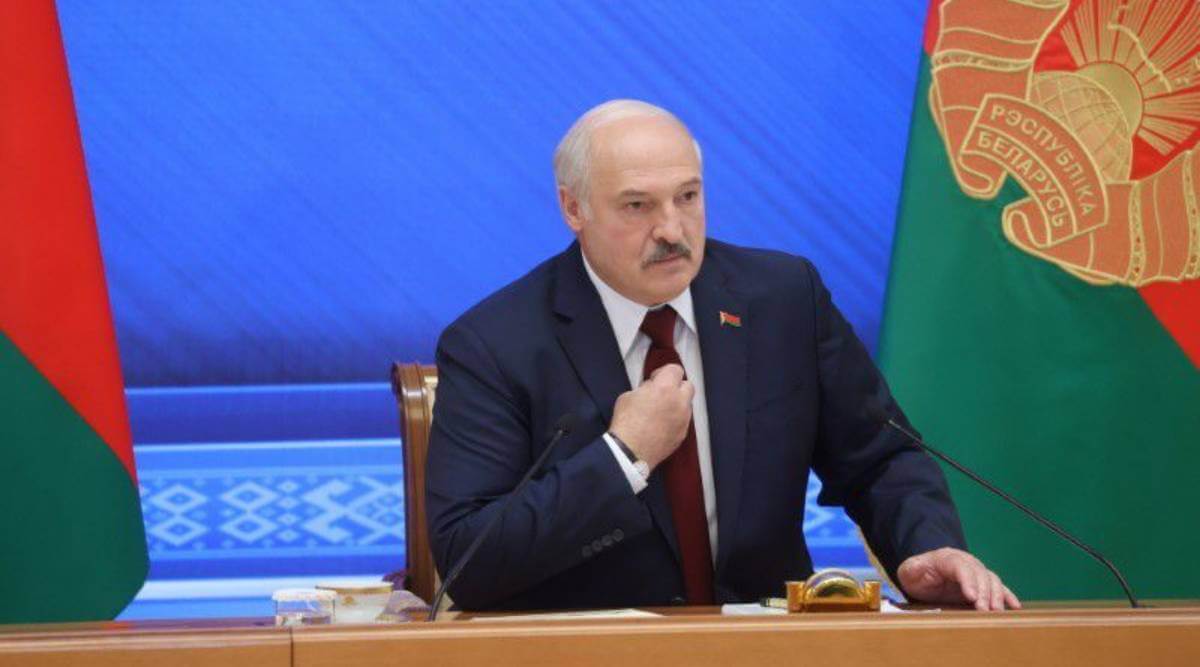President Alexander Lukashenko has decided to launch retaliatory sanctions against the United Kingdom (UK) and the European Union (EU) aviation sector by restricting their airlines from Belarus’ airspace and banning people from entering the country.
On Monday, Belarus’ foreign ministry said, “In response to the illegitimate restrictions on the Belarusian aviation industry, which are based on unfair competition, our country will take similar steps in relation to air carriers from the European Union and the United Kingdom.” Belarus is also discussing a ban on the number of goods imported from the West.
The decision comes after the EU, the UK, the United States (US), and Canada imposed sanctions on Belarusian airline Belavia for trafficking migrants to destabilise the bloc. Meanwhile, Britain sanctioned eight Belarusian officials for alleged human rights violations. Similarly, the EU sanctioned 17 Belarusian citizens, including military officials, border guards, and judges and froze their assets.
In response, Belavia denied the allegations and stopped accepting citizens from Iraq, Syria, Yemen, and Afghanistan with a one-way ticket to Belarus, but the sanctions remained in place.
Last month, thousands of migrants camped in freezing temperatures at the Poland-Belarus border, hoping to enter the bloc. The EU accused Lukashenko of intentionally creating a migration crisis to retaliate against the sanctions imposed by the bloc over human rights abuses and electoral fraud.
The latest sanctions on Belarusian carrier Belavia, including the travel ban and asset freeze, were condemned by Lukashenko’s regime, which deemed it as a futile attempt by Western powers to bring down countries they dislike. Last Thursday, the Belarusian foreign ministry said: “It is obvious that the crumbling security and the migrant crisis are not the faults of Belarus but of the Western states that have destroyed the peace and traditional way of life in the countries–the origin of most migrants.” The ministry added that adequate retaliatory measures would mirror unfriendly and anti-Belarus actions.
On Monday, Lukashenko said the latest sanctions are unlikely to cause any tangible harm to the country. He added that Belarus continues to maintain steady economic growth, with the World Bank expecting the country’s GDP to grow by 1.2%this year.
Some analysts believe that Belarus’ steady economic growth is because of Russian aid as President Vladimir Putin provides Belarus with loans and cheap oil and gas. Russia has also opened its market to Belarusian goods. To this end, independent analyst Valery Karbalevich told the Associated Press: “Lukashenko is ready to intensify confrontation with the West and be at the forefront of Kremlin’s plans since Moscow still pays for Minsk’s anti-Western rhetoric. Western sanctions will hurt sensitive sectors of the Belarusian economy, but they will be compensated for Belarusians out of Russian pockets.”
Lukashenko further escalated tensions with the West by offering to host Russian nuclear weapons on Belarusian soil amid reports that Russia is planning to invade Ukraine in the new year.
Belarusian Leader Lukashenko Launches Retaliatory Sanctions Against EU, UK Airlines
Belarusian leader Alexander Lukashenko has decided to sanction the United Kingdom’s and the European Union’s aviation sector to retaliate against the latest sanctions over human trafficking.
December 7, 2021

Belarus' President Alexander Lukashenko IMAGE SOURCE: THE INDIAN EXPRESS
